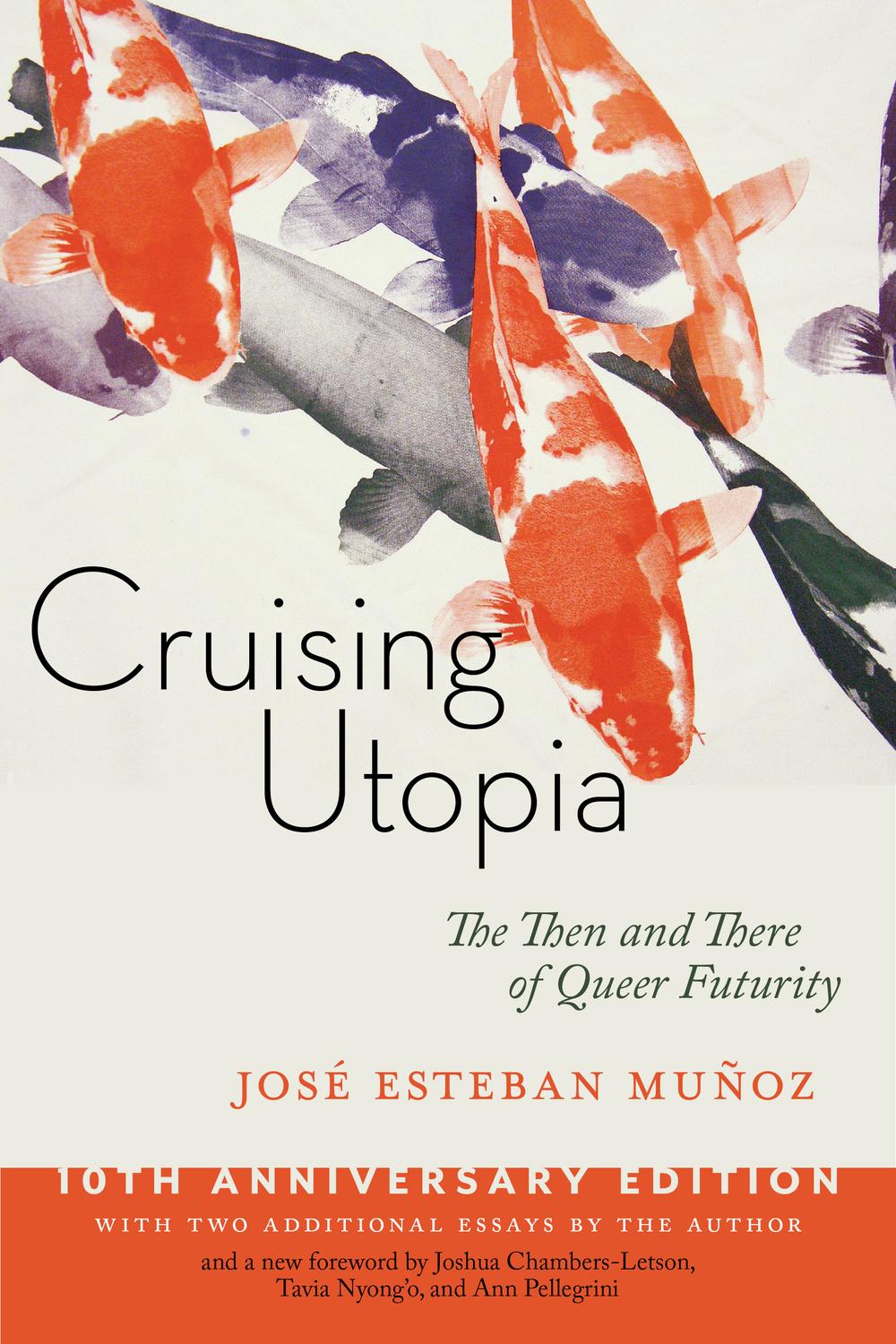So if you'v been on my site for any period of time you know my love of utopia... This all began because I read fantasy obsessively as a kid, wouldn't put down pokemon games when dinner was ready, and continue to desperately conjure up the belief that magic exists. Munoz is a vital part of my continued dreaming, of hoping that I can achieve a place where all things can be understood, created, performed, and felt. I begin with my favorite quotes from this book:
"Some will say all we have are the pleasures of this moment. but we must never settle for that minimal transport; we must dream and enact new and better pleasures, other ways of being in the world, and ultimately new worlds" (1 Cruising Utopia).
"Queerness is essentially about the rejection of a here and now and an insistence on potentiallity or concrete possibility for another world" (1 Cruising Utopia).
The Argument
So I want to explain as best I can the arguments put forth in Cruising Utopia as I understand them (keep in mind I am a young college student and not an expert in the field by any means). Munoz opens the book with one of the most iconic lines I have ever read: "Queerness is not yet here." What does this mean? Am I not queer? If I think of myself as queer, do I exist? He continues soon after with: "Put another way, we are not yet queer. We may never touch queerness, but we can feel it as the warm illumination of a horizon imbued with potentiality."
The simplest way to explain Munoz's argument is a person who is dissatisfied with the present marginilization of late-capitalism, systemic racism, hetero/homonormativity, or climate injustice can look back to the past for inspiration/meaning/beloging/ideality. This action is done in the present. One looks to history in the current moment, from a specific place, time, subject-position. Then using this looking back to the past one imagines a future. This future does not exist in the here and now, but rather (this is an important concept for Munoz) in the then and there. Put simply, The future does not exist in the present, it exists ahead of us, in the future: or when does future exist? Then, and where does it exist spatially, over there. This ideal that is queerness (derived from the past, thought of in the present, projected to the future's then and there) can exist within an art piece, as a collective ideality, and personal longing (Munoz evokes the idea of the lonely oddball dreaming at one's desk for many).
So a number of questions come up for me after this opening. Why is Munoz not content with queerness as synonymous with minoritarian gender and sexuality (like LGTBQ+)? Is he saying queerness is not a noun or identity (i.e. I am queer) but instead a verb or something that people do? I will start with the first, for Munoz



